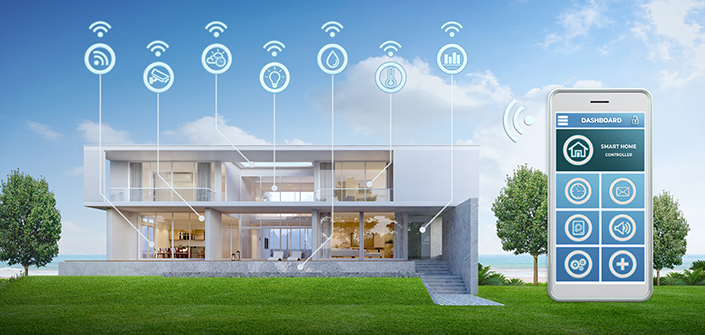Dr. Daniel Gavilanes Aray, a collaborator of the Universidad Europea del Atlántico (European University of the Atlantic, UNEATLANTICO), together with professionals from other areas, is developing a smart home monitoring system based on blockchain and edge computing to reduce and optimize energy use.
Faced with rising energy costs, disparities in supply and demand, and a growing carbon footprint, there is a requirement for innovative solutions in energy management systems. The incorporation of the Internet of Things (IoT) has paved the way for the creation of smart homes that monitor, manage and conserve energy for a sustainable and cost-effective future.
Smart homes are becoming a trend in the technology industry. These homes are equipped with a variety of Internet-connected devices that allow residents to control and monitor their functions through mobile apps or voice commands. This monitoring system leverages the potential of edge computing, focusing on the periphery of the network to eliminate latency and scalability issues.
Data collected in real time from different energy-consuming devices, such as appliances, lighting systems and electronic devices, is stored at the edge of the network before being stored in the cloud. This raises concerns because the data collected is susceptible to cyber attacks. According to a report, data theft from IoT applications has increased by 22%, raising many concerns.
To address this, blockchain has been implemented in the proposed system to ensure secure and transparent transactions within it, making it resistant to data manipulation and unauthorized access. Each transaction is recorded and validated by multiple nodes, which enhances the integrity of the system and builds trust among users. These security measures are essential for cybersecurity and preserving the privacy of homeowners.
On the other hand, smart homes also have the potential to reduce energy consumption and help homeowners better manage their resources. To enhance this function, the proposed system analyzes historical patterns of energy consumption and incorporates weather forecasts to predict demand and efficiently manage energy use. This predictive capability empowers homeowners to make informed decisions about optimizing energy consumption and reducing their dependence on the power grid.
The potential applications of this system are many. In a world rapidly transitioning to renewable energy sources, such as solar power and wind turbines, this intelligent system can seamlessly manage the flow of power between the main grid and locally generated renewable sources. In addition, by detecting anomalous patterns of energy consumption, the system can detect faults, identify significant energy wastage, and ensure that maintenance requirements are addressed in a timely manner.
In this way, this study offers a promising solution to the challenges posed by increasing energy demand and sustainability concerns. Its interdisciplinary nature combines IoT, blockchain and edge computing to provide homeowners with an intelligent energy management system that optimizes energy consumption, improves safety and promotes sustainability.
If you want to learn more about this study, click here.
To read more research, consult the UNEATLANTICO repository.
The Iberoamerican University Foundation (FUNIBER) offers the Master in Strategic Telecommunications Management. A program that develops students’ skills to propose organizational, technological, commercial and financial innovations in order to ensure competitiveness in companies.


